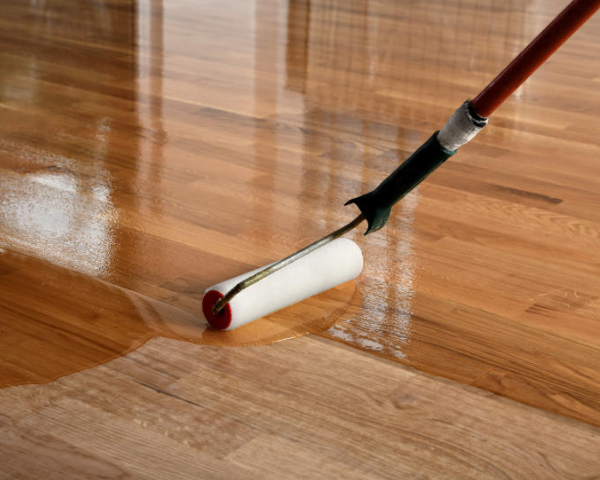
Introduction
When it comes to finishing your floor, the choice between oil-based and water-based polyurethane can be overwhelming. Both options have their unique advantages and considerations. In this ultimate DIY guide, we will explore the differences between oil-based and water-based polyurethane finishes, helping you make an informed decision for your flooring project.
Understanding Oil-Based Polyurethane
Oil-based polyurethane is a traditional and popular choice for finishing floors. It is made of synthetic resins, plasticizers, and drying oils, such as linseed or tung oil. Here are some key points to consider:
- Durability: Oil-based polyurethane is known for its exceptional durability and resistance to scratches, stains, and moisture. It provides a hard protective layer that can withstand heavy foot traffic and everyday wear and tear.
- Appearance: This type of finish tends to deepen the natural color of the wood, giving it a warm and rich appearance. It enhances the natural beauty of the wood grain and provides a classic, timeless look.
- Drying Time: Oil-based polyurethane typically takes longer to dry compared to water-based options. It can take anywhere from 24 to 48 hours for each coat to dry completely. This longer drying time means you need to plan accordingly and allow for adequate ventilation.
- Odor: Oil-based polyurethane has a strong odor due to the presence of volatile organic compounds (VOCs). It is important to use proper ventilation and take necessary precautions when working with this finish.
- Application: When applying oil-based polyurethane, it is recommended to use a natural bristle brush or a lambswool applicator for even coverage. Multiple coats are usually required, with sanding between each coat to achieve a smooth and flawless finish.
Exploring Water-Based Polyurethane
Water-based polyurethane is a newer alternative to oil-based finishes. It is made of water, synthetic resins, and additives. Here are some key points to consider:
- Durability: Water-based polyurethane offers excellent durability and protection for your floor. It forms a clear and hard coating that is resistant to scratches, stains, and moisture. It is ideal for high-traffic areas and households with pets and children.
- Appearance: Unlike oil-based finishes, water-based polyurethane dries clear and does not significantly alter the natural color of the wood. It provides a more contemporary and natural look, allowing the wood’s natural beauty to shine through.
- Drying Time: One of the major advantages of water-based polyurethane is its quick drying time. It usually dries within a few hours, allowing you to apply multiple coats in a single day. This makes it a convenient choice for those who want to finish their floors efficiently.
- Odor: Water-based polyurethane has a significantly lower odor compared to oil-based options. It emits fewer VOCs, making it a more environmentally friendly and user-friendly choice. However, it is still important to maintain proper ventilation during application.
- Application: Water-based polyurethane can be applied using a synthetic bristle brush, a foam roller, or a sprayer. It is important to follow the manufacturer’s instructions for the best results. Unlike oil-based finishes, water-based polyurethane does not require sanding between coats in most cases.
Choosing the Right Finish for Your Floor
Now that you have a better understanding of the differences between oil-based and water-based polyurethane finishes, it’s time to choose the right one for your floor. Consider the following factors:
- Wood Type: Some wood species may react differently to certain finishes. It is recommended to test the finish on a small inconspicuous area before applying it to the entire floor.
- Desired Appearance: If you want to enhance the natural color and achieve a classic look, oil-based polyurethane might be the better choice. If you prefer a more natural and contemporary look, water-based polyurethane is a great option.
- Time Constraints: If you have limited time and need to finish your floor quickly, water-based polyurethane is the more efficient choice due to its shorter drying time.
- Environmental Impact: If you are concerned about VOC emissions and prefer a more eco-friendly option, water-based polyurethane is the better choice.
Conclusion
Choosing the right finish for your floor is an important decision that can greatly impact the overall appearance and durability of your space. Whether you opt for the classic and warm look of oil-based polyurethane or the contemporary and eco-friendly nature of water-based polyurethane, both options offer excellent protection for your floor. Consider your specific needs, preferences, and the characteristics of your wood to make an informed choice. Happy finishing!
